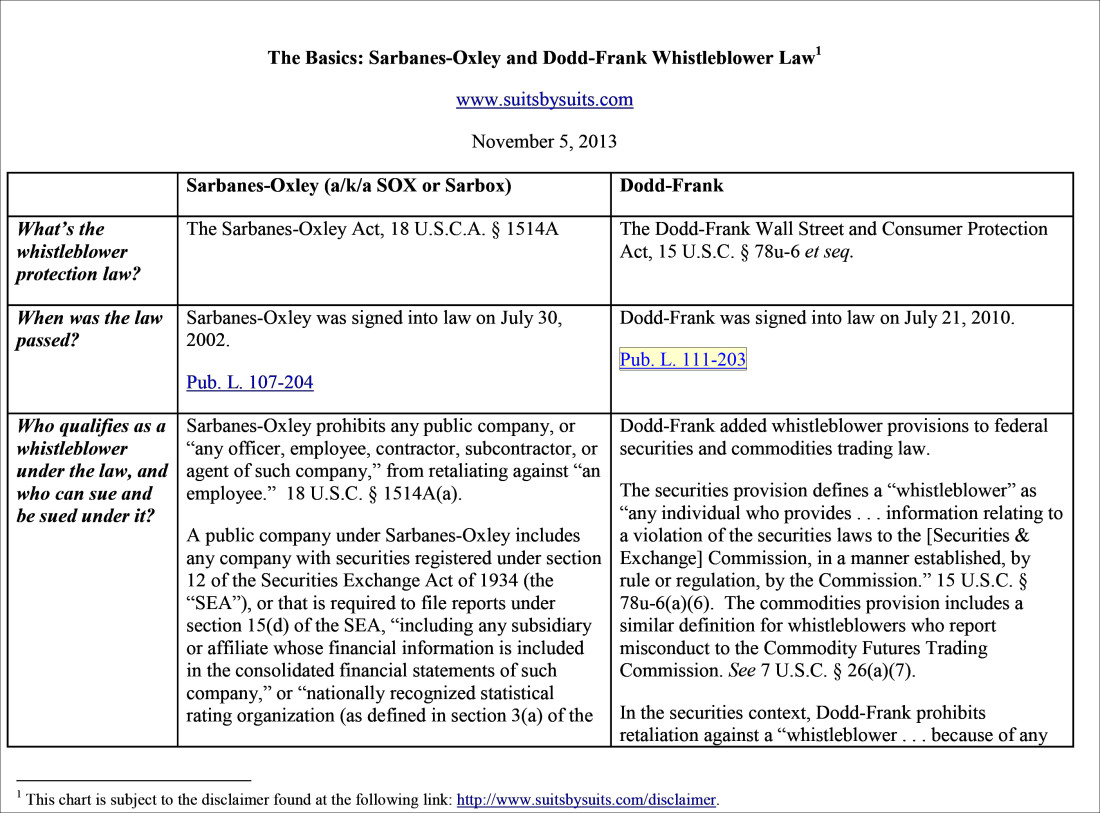The Basics: Dodd-Frank vs. Sarbanes-Oxley Whistleblower Law

The Dodd-Frank and Sarbanes-Oxley whistleblower laws are hot topics right now. A split of authority is developing in the federal courts over how an employee can qualify as a whistleblower and bring a retaliation claim under Dodd-Frank. And the Supreme Court will hear argument next Tuesday in a case, Lawson v. FMR LLC, that will require it to decide whether private employers can be subject to Sarbanes-Oxley retaliation claims by their employees.
As we at Suits by Suits continue to watch these issues, we thought it would be helpful to step back for a broader view of these important whistleblower laws. In the table linked here, we have summarized the important facets of each law. This table will serve as a reference point for new developments, placing them in the broader context of these whistleblower protections.
Information provided on InsightZS should not be considered legal advice and expressed views are those of the authors alone. Readers should seek specific legal guidance before acting in any particular circumstance.
As the regulatory and business environments in which our clients operate grow increasingly complex, we identify and offer perspectives on significant legal developments affecting businesses, organizations, and individuals. Each post aims to address timely issues and trends by evaluating impactful decisions, sharing observations of key enforcement changes, or distilling best practices drawn from experience. InsightZS also features personal interest pieces about the impact of our legal work in our communities and about associate life at Zuckerman Spaeder.
Information provided on InsightZS should not be considered legal advice and expressed views are those of the authors alone. Readers should seek specific legal guidance before acting in any particular circumstance.




